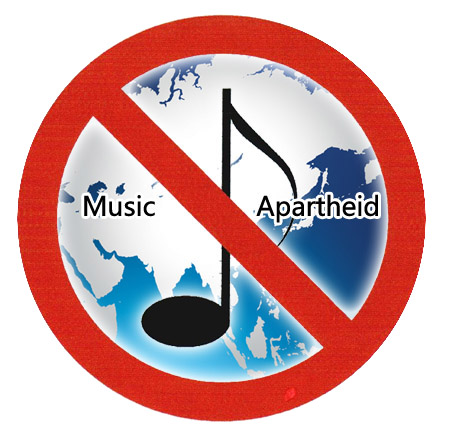Asia’s Neglected Music Consumers
In this updated in-depth post, which was first published on the MIDEMNet blog for MIDEM 2010 where I was a speaker, it highlights the plight of Asia’s music consumers who are not only unable to conveniently access legal music but also cannot comprehend the music industry’s seemingly complex reasons for this ‘music apartheid’. The following is Part 1 of a two-part series on the state of music licensing in Asia.
As we move into a new decade and leave the last one behind, we see yet another year of unfulfilled opportunities gone by the Asian market (references to Asia in this article will generally exclude Japan, Korea and Australia). For far too long, Asian music consumers have been neglected and not been given fair access to music. Instead, discussions on music consumption in Asia are usually in the context of piracy and Asian music consumers are often arbitrarily labeled as the stewards of said piracy.
It is inexplicable that in this digital age, legal access to music across large swathes of Asia is glaringly lacking. With the dearth of fair and convenient access, it is no wonder that Asia’s music consumers have had to resort to file-sharing networks to obtain their music.
China, despite the huge levels of piracy – in an ironic twist of circumstance and partly due to efforts to curb piracy – has recently been infused with one of the largest quantities of legal full-length music available to consumers in Asia via Google China and the wawawa Music Store with the caveat that it is still an experiment in progress as other variables at play will also influence the final outcome. In the meantime, the rest of Asia’s consumers would be justified in wondering if indulging in excessive piracy is the only route by which they too will be offered legal access to music. Instead, Asian consumers who want to do the right thing have often been subjected to music apartheid in their futile attempts to purchase music legally. Consumers do not understand the music industry’s self-imposed borders and complex self-righteous rights controls in this digital age that they see as ultimately serving only to impede the access of legal music to their shores.
For example, despite Apple’s stand that the iTunes Music Store is an integral part of the iPod music consumption experience, it is the lack of access to the former, but easy availability of the iPod in Asia – and duly stocked with pirated music by users – that has had Asians wondering aloud for years as to when Apple would make the iTunes Music Store available in this part of the world. Chin Wong of the Philippines Manila Standard in an open letter to Steve Jobs more than three years ago encapsulated Asian sentiments best:
“Where are Asian iPod buyers supposed to get their music? Limewire? Other file-sharing sites? We don’t blame Walmart for NOT selling us a whole bunch of stuff, but being able to buy songs on iTunes is arguably part of the iPod experience – or at least Apple sells it as such. So, if they’re going to sell us a product here that only works part of the way, they should at least level with us and say why they have to do it, don’t you think?”
Of course, the standard answer and bogeyman is piracy…and Apple might even see it fit to deflect it to the major labels’ reticence and/or demands as barriers. This begets the question as to whose responsibility it is to ensure that Asian consumers have fair access to music – labels or retail providers… or both?
As we enter a new decade, the questions asked by Chin Wong on behalf of Asians are still relevant and the music industry collectively has to examine the situation and seriously review the relative state of lethargy and inertia being exhibited with regards to licensing music in Asia.
Indeed, compared to the West, Asian music consumption habits are different and involve a plethora of services and devices that labels and distributors need to familiarize themselves with before they embark on negotiations and partnerships with potential Asian online and mobile retailers.
With a dearth of legal music services in Asia in general, it can be argued that music fans in Asia will inevitably seek out P2P, BitTorrent services and illegal websites that fulfill their needs and this will in turn embolden and strengthen these services. And when these illegal services fester and become more virulent, and with the Internet being a global marketplace despite the best efforts of labels and music publishers to artificially practice music apartheid, these same services will eventually be accessed by hitherto consumers of legal music in the West. The BPI stated that in the last 6 months there was a 47% increase amongst UK users of unlicensed overseas MP3 pay sites and 28% of illegal mp3 search engines. On the flip side, it should be noted that UK users are willing to risk their credit card information and pay for music at unlicensed MP3 sites in Russia – as proof of concept, this shows that customers ARE willing to pay for music but that pricing is an issue. Martin Lewis of popular UK site Money Saving Expert reinforces the notion by stating, “If it (music industry) promoted cheaper, legit music it’d mean fewer illegal downloads.”
This lesson can be applied to Asia and fair pricing is necessary in order to wean consumers off disorganized, metadata deficient and at times, virus and malware infested illegal music sites and services.
Detractors will claim that mobile carriers in Asian countries are already offering music to consumers via mobile but it is certainly an affront to music fans that mobile carriers’ collections from the low thousands to around 100,000 tracks barely fulfill users’ needs when access to millions of songs are available via P2P and BitTorrent in comparison. Put simply, the niche music needs of millions of Asians are not being met sufficiently in terms of choice via deficient existing mobile music catalogues and it is a throwback to the music industry of old when it was dictated to consumers that they would only be allowed access to a finite base of mainstream music.
The last company that attempted to meet users’ needs across Asia was pan-Asian online music store, Soundbuzz. Unfortunately, with utmost respect to them, despite their best efforts over 10 years in bridging major label parameters, lack of efficient online payment systems and piracy, the store was closed down by their new owners Motorola in July 2009 due to a change of strategy by the latter leaving a void in the Asian digital music space.
In the meantime, another mobile device manufacturer, Nokia, has attempted to move into the vacuum in Asia. Though its attempts to provide access to music are to be lauded, it has to be recognized that there is a high barrier to entry requiring customers to first purchase a phone that provides users with a passport to a library of music – their objective is not to provide music for its own sake ala a traditional music store but to sell devices. So Nokia’s Comes With Music is not a typical service for the average music consumer in Asia with its high entry price point.
Sandy Monteiro, SVP of Universal Music Group, South-East Asia and one of the more prominent digital music executives in Asia, has likened the music industry to a sleeping giant that has finally awoken:
‘We had been too entrenched in selling physical media like tapes and CDs for decades,’ he said. ‘We thought our job was to sell CDs. The truth is they were just containers for our real business – selling music”.
Indeed, CDs are still seen as the last chance saloon cash cows by retailers in Asia and in countries like Singapore and Hong Kong, they are sold at unrealistic prices of around S$16-20 and HK$100 all the way to HK$200 for imports respectively. It is no wonder that consumers are driven to illegal downloads, but laws in Singapore and Hong Kong dictate that downloaders stand to be prosecuted. So music consumers end up experiencing the classic rock/hard place syndrome with high CD prices on the one hand and theoretically facing prosecution for the downloads their passion for music drives them to.
Symptomatic of the gridlock that plagues attempts to introduce legal retail digital music services in Asia is the report of a spat between HMV Singapore and Singapore rights collection society, COMPASS in December. HMV’s attempt to introduce a digital music kiosk at its premises failed to materialize due to an impasse in its negotiations with COMPASS which provoked Emily Butt, managing director of HMV Singapore and Hong Kong to protest,
“The society is asking for a high advance and high commissions on digital tracks to be sold at the kiosk. COMPASS has not been very cooperative in terms of helping with this digital platform. They’re discouraging people from offering a digital service.”
COMPASS licensing manager Melvin Tan rebuffed the claims: “COMPASS has consulted its stakeholders who have totally declined the proposal. The allegation by HMV is both inaccurate and untrue.”
In Vietnam, another high profile legal music service, Pops.vn has been trying to license music for digital sale but was instructed by all the major labels with the exception of EMI that they would only license if DRM was integrated into the music offering – and yes, this is still happening in 2010!!
Of course it has to be recognized that there is also an uncontrollable amount of piracy managed by opportunist companies and exacerbated by the loopholes and protection accorded to them by the Safe Harbor provisions of DMCA equivalent laws in these countries. (I have written an in-depth analysis on the abuse of the Safe Harbor provision for the the International Association of Entertainment Lawyers’ Collective Rights Licensing 2010 Yearbook which can be read here.)
And this might cause labels to err too much on the side of caution in demanding stringent upfront advances from all its potential partners, but if insufficient due diligence and unrealistic blanket conditions combined with the blind application of Western licensing models, minimum guarantees and service fees in US dollars are imposed on potential retail partners, then it can only serve to add to the barren landscape of still-born music retail services.
This is by no means a discourse on the rights and wrongs of the involved parties, but the real loser here, as it has been across Asia for years is the consumer. It has to be realized that there is a legal music access problem in Asia and it behooves labels and publishers to ensure that they seek out and provide maximum support to trusted and reliable retail partners, otherwise, it is pointless for label executives to bemoan music piracy in Asia during music industry conferences. Indeed the collateral damage that the music industry has inflicted upon the average music consumer in Asia has to stop.
However, with some due diligence and planning, labels and music retailers can make an informed decision on Licensing Music in Asia, details of which can be read in Part 2 here.
Mathew is the Vice-President of online music distributor R2G and independent music store, wawawa based in China


